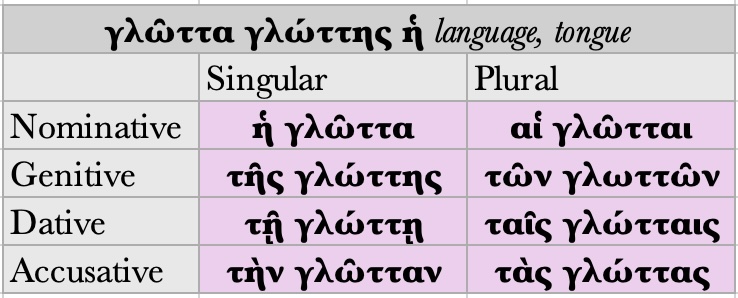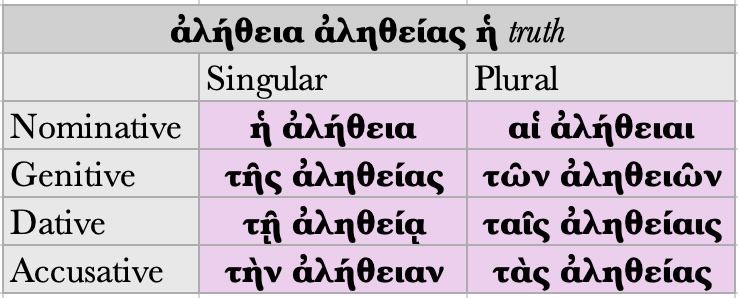19.11 A third class of first declension nouns end in –ᾰ– in the NOMINATIVE and ACCUSATIVE SINGULAR, yet still retain –η– in the genitive and dative singular (S 216, 221, G 67c). Nouns of this class can often be identified by the accent of the nominative singular. Note, for example, that the –α must be short for the accent to be able to recede to the antepenult of θάλαττα, θαλάττης, ἡ sea, or to allow for a circumflex over the penult of γλῶττα, γλώττης, ἡ tongue, language.
Again, when this type of noun has a stem ending in –ε, –ι or –ρ, ᾱ is used for the genitive and dative singular. Note the following inflections:
Charts JPG




